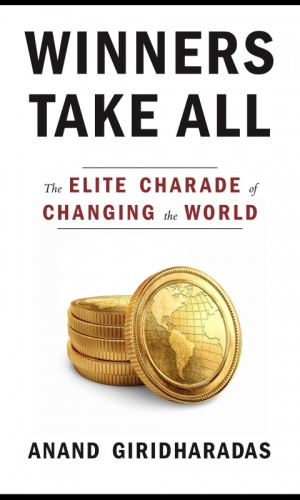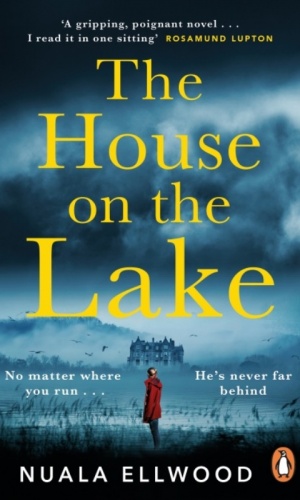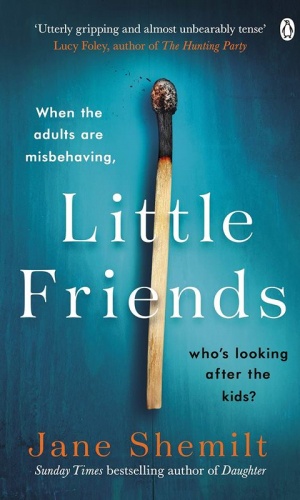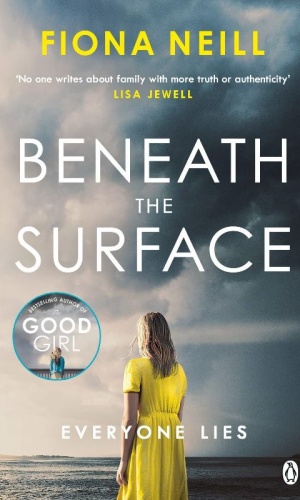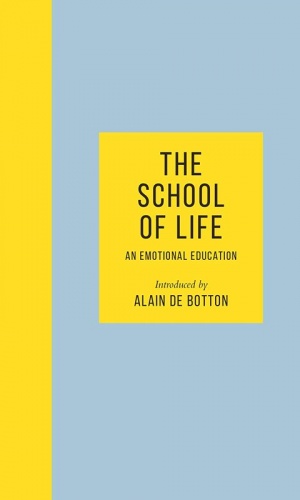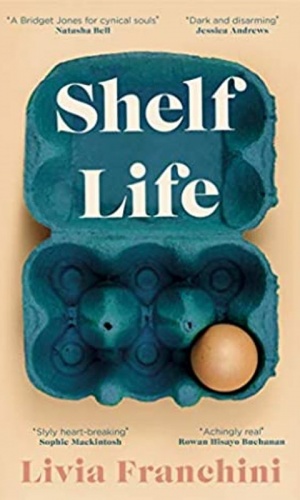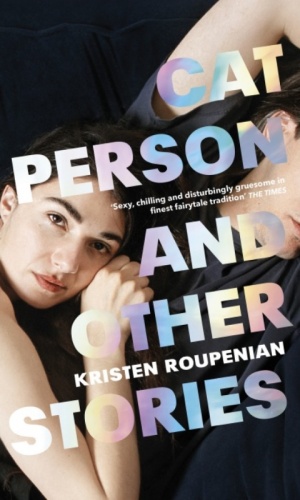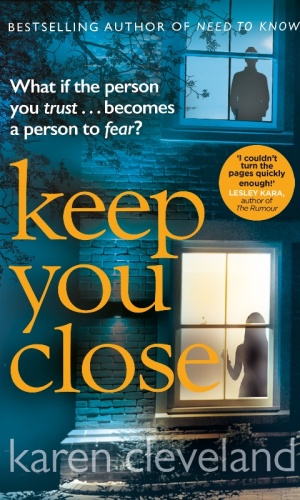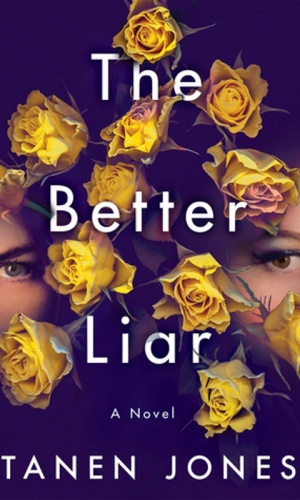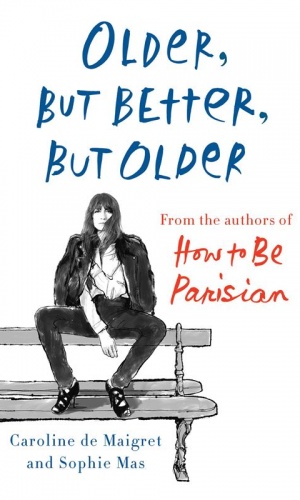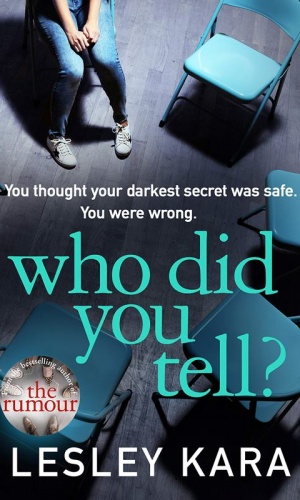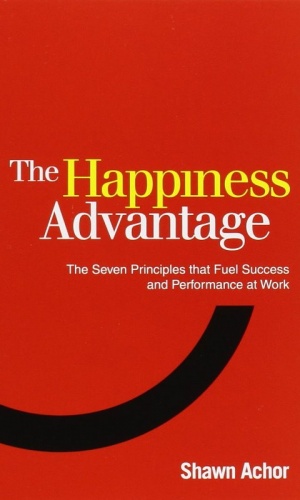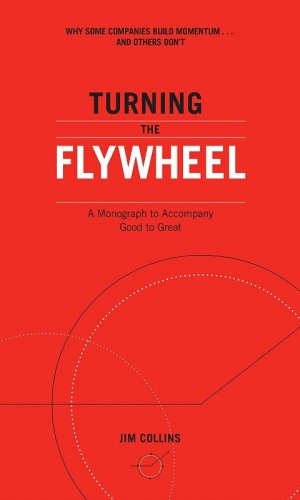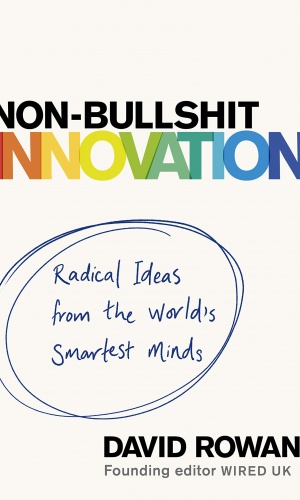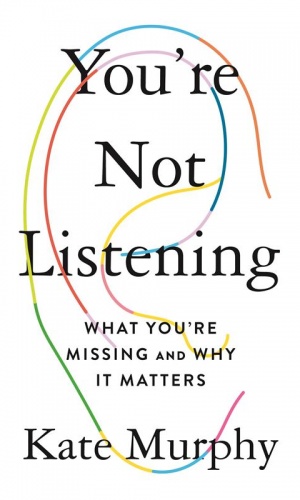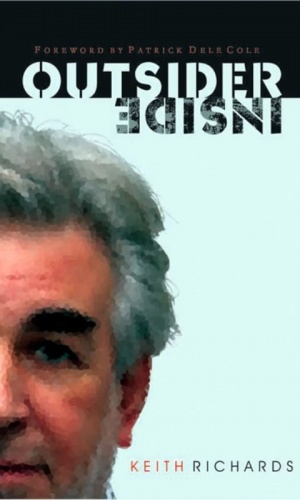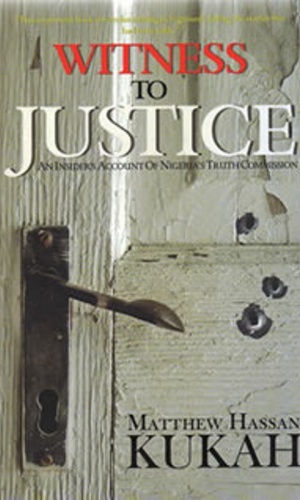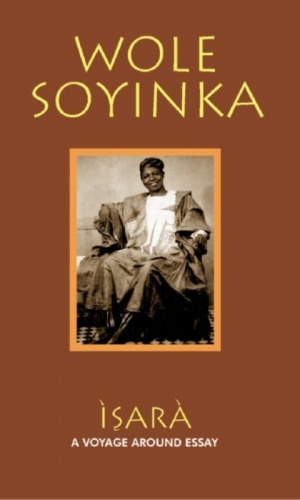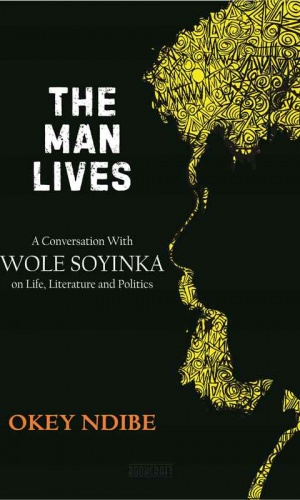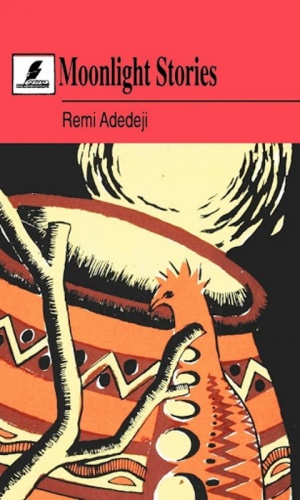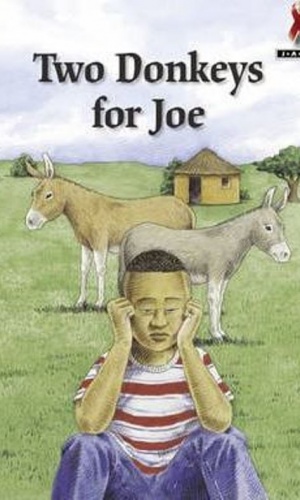-
Winners Take All
Former New York Times columnist Anand Giridharadas takes us into the inner sanctums of a new gilded age, where the rich and powerful fight for equality and justice any way they can – except ways that threaten the social order and their position atop it. We see how they rebrand themselves as saviours of the poor; how they lavishly reward “thought leaders” who redefine “change” in winner-friendly ways; and how they constantly seek to do more good, but never less harm.
₦6,900 -
The House On The Lake
Lisa needs to disappear. And her friend’s rambling old home in the wilds of Yorkshire seems like the perfect place. It’s miles away from the closest town, and no one there knows her or her little boy, Joe.
₦4,900 -
Little Friends
Their children are friends first. They hit it off immediately, as kids do. And so the parents are forced to get to know each other. Three wildly different couples. Three marriages, floundering.
₦7,400 -
Beneath The Surface
Grace is determined to give her daughters the idyllic childhood she never had.
Teenage Lilly is everyone’s golden girl, the one Grace never has to worry about – unlike ten-year-old Mia, whose wild imagination often gets her into trouble.
But when Lilly suddenly collapses at school, Grace’s carefully ordered world is turned upside down.
Because it soon turns out that Lilly wasn’t the perfect daughter after all.
Grace is fixated on discovering the truth about Lilly. Which is when she takes her eyes off Mia .
₦4,900 -
Grown Ups
They’re a glamorous family, the Caseys.
Johnny Casey, his two brothers Ed and Liam, their beautiful, talented wives and all their kids spend a lot of time together – birthday parties, anniversary celebrations, weekends away. And they’re a happy family. Johnny’s wife, Jessie – who has the most money – insists on it.
Under the surface, though, conditions are murkier. While some people clash, other people like each other far too much . . .
₦4,900 -
The School Of Life
We spend years in school learning facts and figures but the one thing we’re never taught is how to live a fulfilled life. That’s why we need The School of Life – a real organisation founded ten years ago by writer and philosopher Alain de Botton. The School of Life has one simple aim: to equip people with the tools to survive and thrive in the modern world. And the most important of these tools is emotional intelligence.
₦6,700 -
Shelf Life
Ruth is thirty years old. She works as a nurse in a care home and her fiancé has just broken up with her. The only thing she has left of him is their shopping list for the upcoming week.
₦4,300 -
Blindside
Bennett and the mayor have always had a tense relationship, but now the mayor sees in Bennett a discreet investigator with family worries of his own. Just one father helping another.
The detective leaps into the case and sources lead him to a homicide in the Bronx. The victim has ties to a sophisticated hacking operation — and also to the mayor’s missing daughter, Natalie, a twenty-one-year-old computer prodigy.
₦4,900 -
Cat Person And Other Stories
You Know You Want This brilliantly explores the ways in which women are horrifying as much as it captures the horrors that are done to them. Among its pages are a couple who becomes obsessed with their friend hearing them have sex, then seeing them have sex…until they can’t have sex without him; a ten-year-old whose birthday party takes a sinister turn when she wishes for “something mean”; a woman who finds a book of spells half hidden at the library and summons her heart’s desire: a nameless, naked man; and a self-proclaimed “biter” who dreams of sneaking up behind and sinking her teeth into a green-eyed, long-haired, pink-cheeked coworker.
₦4,300 -
Keep You Close
Stephanie Maddox works her dream job policing power and exposing corruption within the FBI. Getting here has taken her nearly two decades of hard work, laser focus, and personal sacrifices—the most important, she fears, being a close relationship with her teenage son, Zachary. A single parent, Steph’s missed a lot of school events, birthdays, and vacations with her boy—but the truth is, she would move heaven and earth for him, including protecting him from an explosive secret in her past. It just never occurred to her that Zachary would keep secrets of his own.
One day while straightening her son’s room, Steph is shaken to discover a gun hidden in his closet. A loaded gun. Then comes a knock at her front door—a colleague on the domestic terrorism squad, who utters three devastating words: “It’s about Zachary.”
₦5,800 -
The Better Liar
Robin Voigt is dead. If Leslie had arrived at her sister’s cramped Las Vegas apartment just hours earlier, this would have been their first reunion in a decade. In the years since Robin ran away from home as a teenager, Leslie has stayed in New Mexico, taking care of their dying father even as she began building a family of her own. But when their father passed away, Leslie received a rude awakening: She and Robin would receive the inheritance he left them together—or not at all. Now her half of the money may be beyond her grasp. And unbeknownst to anyone, even her husband, Leslie needs it desperately.
When she meets a charismatic young woman who bears an uncanny resemblance to Robin—and has every reason to leave her past behind—the two make a reckless bargain: Mary will impersonate Robin for a week in exchange for Robin’s half of the cash. But neither realizes how high the stakes will become when Mary takes a dead woman’s name. Even as Mary begins to suspect Leslie is hiding something, and Leslie realizes the stranger living in her house, babysitting her newborn son, and charming her husband has secrets of her own, Robin’s wild, troubled legacy threatens to eclipse them both.
₦5,600 -
Long Bright River
In a Philadelphia neighborhood rocked by the opioid crisis, two once-inseparable sisters find themselves at odds. One, Kacey, lives on the streets in the vise of addiction. The other, Mickey, walks those same blocks on her police beat. They don’t speak anymore, but Mickey never stops worrying about her sibling.
₦5,600 -
Older, But Better, But Older
Older, but Better, but Older has the playful wit, self deprecation and worldly advice we have come to expect from these bestselling authors, but now that advice is focused on the French woman’s mindset as she hurtles towards forty. Caroline de Maigret and Sophie Mas are back to amuse you with how they find they are modifying their favorite bad-girl behavior as they address beauty, love, seduction as well as lifestyle, family, work, and living alone.
₦6,900 -
Who Did You Tell
It’s been 192 days, seven hours and fifteen minutes since her last drink. Now Astrid is trying to turn her life around.
Having reluctantly moved back in with her mother, in a quiet seaside town away from the temptations and painful memories of her life before, Astrid is focusing on her recovery. She’s going to meetings. Confessing her misdeeds. Making amends to those she’s wronged.
₦5,600 -
The Happiness Advantage
Our most commonly held formula for success is broken. Conventional wisdom holds that if we work hard we will be more successful, and if we are more successful, then we’ll be happy. If we can just find that great job, win that next promotion, lose those five pounds, happiness will follow. But recent discoveries in the field of positive psychology have shown that this formula is actually backward: Happiness fuels success, not the other way around. When we are positive, our brains become more engaged, creative, motivated, energetic, resilient, and productive at work. This isn’t just an empty mantra. This discovery has been repeatedly borne out by rigorous research in psychology and neuroscience, management studies, and the bottom lines of organizations around the globe.
In The Happiness Advantage, Shawn Achor, who spent over a decade living, researching, and lecturing at Harvard University, draws on his own research—including one of the largest studies of happiness and potential at Harvard and others at companies like UBS and KPMG—to fix this broken formula. Using stories and case studies from his work with thousands of Fortune 500 executives in 42 countries, Achor explains how we can reprogram our brains to become more positive in order to gain a competitive edge at work.
Isolating seven practical, actionable principles that have been tried and tested everywhere from classrooms to boardrooms, stretching from Argentina to Zimbabwe, he shows us how we can capitalize on the Happiness Advantage to improve our performance and maximize our potential. Among the principles he outlines:
₦3,900 -
Turning The Flywheel
A companion guidebook to the number-one bestselling Good to Great, focused on implementation of the flywheel concept, one of Jim Collins’ most memorable ideas that has been used across industries and the social sectors, and with startups.
The key to business success is not a single innovation or one plan. It is the act of turning the flywheel, slowly gaining momentum and eventually reaching a breakthrough. Building upon the flywheel concept introduced in his groundbreaking classic Good to Great, Jim Collins teaches readers how to create their own flywheel, how to accelerate the flywheel’s momentum, and how to stay on the flywheel in shifting markets and during times of turbulence.
₦3,900 -
Non-Bullshit Innovation
‘In this remarkable book, David Rowan tells a story of transformation: how an organisation has found a new way of doing things through innovation driven by ruthless entrepreneurial imagination. What is especially useful is that he does not just stick with small startups, let alone dreamy “inventors”. He finds innovation in big companies and even within governments.’ – Matt Ridley, The Times
₦6,300 -
You’re Not Listening
When was the last time you listened to someone, or someone really listened to you?
“If you’re like most people, you don’t listen as often or as well as you’d like. There’s no one better qualified than a talented journalist to introduce you to the right mindset and skillset―and this book does it with science and humor.”
-Adam Grant, #1 New York Times bestselling author of Originals and Give and Take“An essential book for our times.”
-Lori Gottlieb, New York Times bestselling author of Maybe You Should Talk to SomeoneAt work, we’re taught to lead the conversation.
On social media, we shape our personal narratives.
At parties, we talk over one another. So do our politicians.
We’re not listening.
And no one is listening to us.Despite living in a world where technology allows constant digital communication and opportunities to connect, it seems no one is really listening or even knows how. And it’s making us lonelier, more isolated, and less tolerant than ever before. A listener by trade, New York Times contributor Kate Murphy wanted to know how we got here.
In this always illuminating and often humorous deep dive, Murphy explains why we’re not listening, what it’s doing to us, and how we can reverse the trend. She makes accessible the psychology, neuroscience, and sociology of listening while also introducing us to some of the best listeners out there (including a CIA agent, focus group moderator, bartender, radio producer, and top furniture salesman). Equal parts cultural observation, scientific exploration, and rousing call to action that’s full of practical advice, You’re Not Listening is to listening what Susan Cain’s Quiet was to introversion. It’s time to stop talking and start listening.
₦5,300 -
Outsider Inside
…Outsider Inside offers a unique perspective on our Nigerian society and offers one of the more intelligent analyses of our culture and economy. Keith successfully demonstrates the idiosyncrasies and frustrations of our daily life, the pervasiveness of corruption in our society, while maintaining an optimistic and complimentary analysis of our people and our country… his book tells stories that all of us can relate to, whether we admit to it or not…
₦2,400 -
Witness To Justice
An Insider’s Account of Nigeria’s Truth Commission
₦6,195 -
Isara
The Nobel Prize-winning novelist and playwright examines the colonial period in his native Nigeria during his father’s and grandfather’s generations, revealing the human complexities of political oppression
₦4,900 -
The Man Lives
The moment Soyinka accepted to sit down to a conversation; I recognised that it would be a waste and a shame to limit our exchanges to a single, narrow aspect of his life and work … Here was an opportunity that called for a broader consideration of his work – as an artist, intellectual and redoubtable advocate for human rights and justice. I had to seize it… His voice evinced no trace of fatigue. He answered my questions in a focused, attuned manner, his responses marked by characteristic candour and occasional acerbity…We revisited Biafra. We discussed the intersections between art and politics.
₦3,400 -
-
Two Donkey For Joe
The JAWS HIV/AIDS readers aim to instil the knowledge, skills, attitudes and values that will enable our children to conquer the pandemic that is sweeping through our world.
₦650

